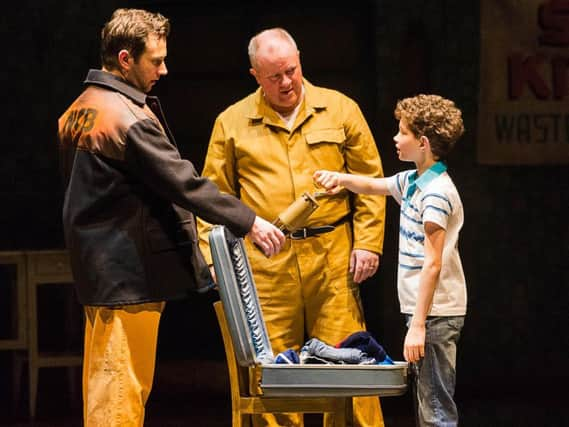Billy Elliot offers an important slice of "social history"


“Partly it is about educating people about what happened with the miners,” says Martin Walsh who plays Billy’s dad. “But you also think about what is happening in the steel industry now, and you also think about the NHS which is also under attack.”
All reasons why Billy Elliot is an important social document – as well as being a cracking show.
Advertisement
Hide AdAdvertisement
Hide AdSet in a northern mining town, against the background of the 1984-85 miners’ strike, Billy’s journey takes him out of the boxing ring and into a ballet class where he discovers a passion for dance that inspires his family and whole community and changes his life forever.
Martin’s role is to play his initially-uncomprehending father.
“I was watching a documentary the other day about the last deep mine closing, just as we were rehearsing. I was just seeing the conditions they were working in, awful, miserable conditions, and back in the 80s, there was obviously less mechanisation. They earnt their money, but you think of the danger and the dankness and the darkness. And everybody was supported by just the one wage back then.
“When the mines went, there was nothing else for them. Just reading about it, they were not fighting for better money. They were just trying to protect the industry, just trying to keep it going, and we all know how it ended up. As we start the show, there is the announcement of the strike, and the miners are all up for it. They are all jubilant. They are all thinking they can sort it all out. It’s actually one of the hardest moments to play because we know what is going to happen to them.”